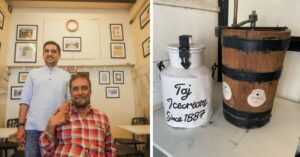This Woman Was a Pavement Dweller, Today She Runs a Sanitary Pad Manufacturing Unit!
With low levels of formal employment in slum communities, Myna employs women and trains them to be entrepreneurs who run franchisee businesses for women’s products.
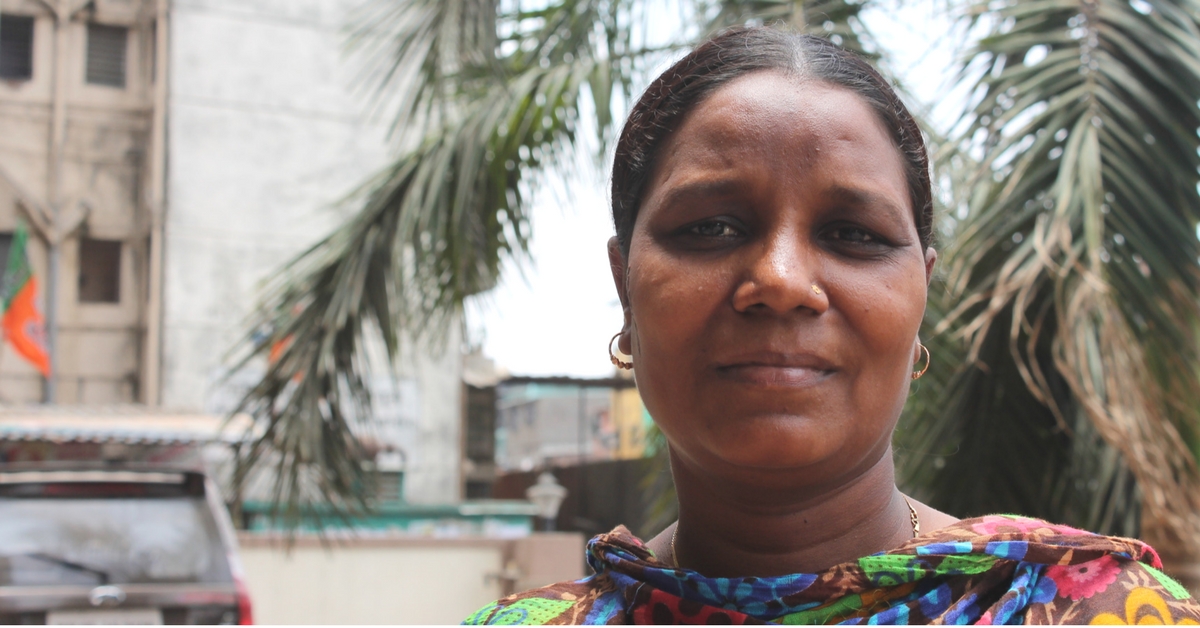
In 2008 when the jhopadpattis on the pavements of Sewri were demolished, Parveen Sheikh sat by the footpath with her friend Kanta Nada mourning her lost home.
Out of 680 homes, according to the 1995 election rules, only 280 homes were rehabilitated — Parveen’s home was not on the list. The BMC assured the angered pavement dwellers to not lose hope, it was just the first phase of rehabilitation.
A 12-year-old boy ran to Parveen and said, “Aunty, they have come with weapons to kill you, run away.”
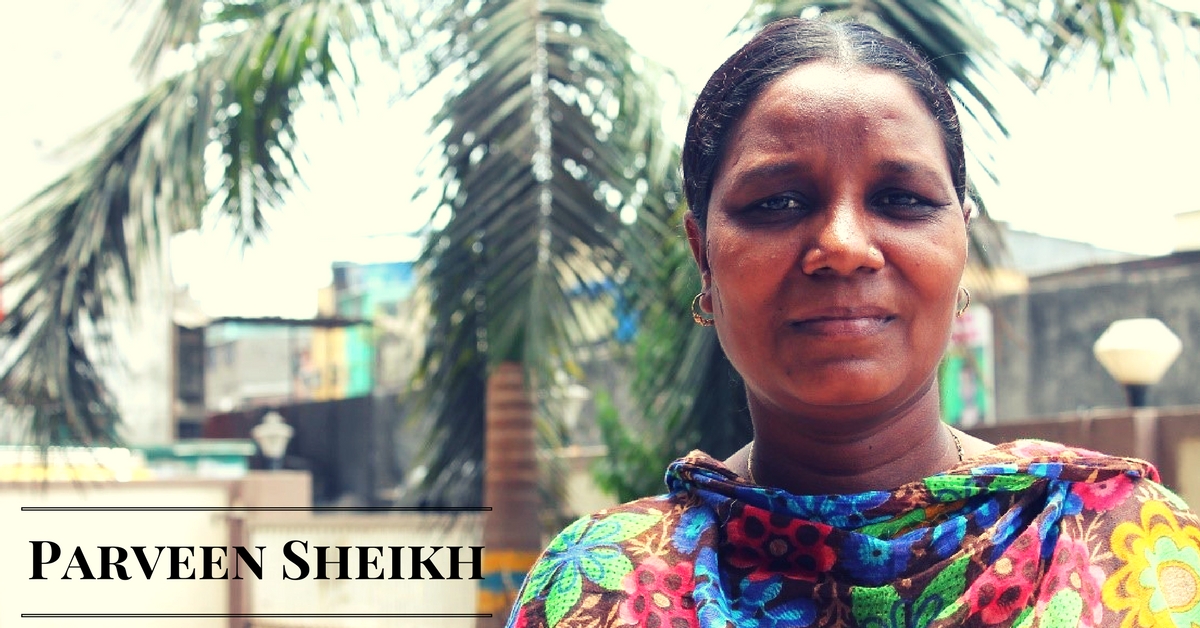
Running at a distance towards her was a crowd of people with every weapon she had possibly seen— knives, bamboos, sticks alike, bloodthirsty for a certain Mahila Milan leader responsible for their lost homes. Zia bhai, one of Parveen’s neighbour rushed with his wife’s burqa, she donned it and hid in the blue water drum in a neighbour’s movers and packers truck.
She remembers staying in hiding with her family for a month in a room in Mankhurd. A few days later, the same phone calls made their way back again. This time apologizing for their misunderstanding. Parveen Sheikh had had enough, she would give up social work. But she realised, it was perhaps their homelessness that led to their reckless actions.
She crusaded for their rehabilitation again. Within a week after that, 122 more homes were passed and people thanked the same Mahila Milan leader again.
Who is Parveen Sheikh?
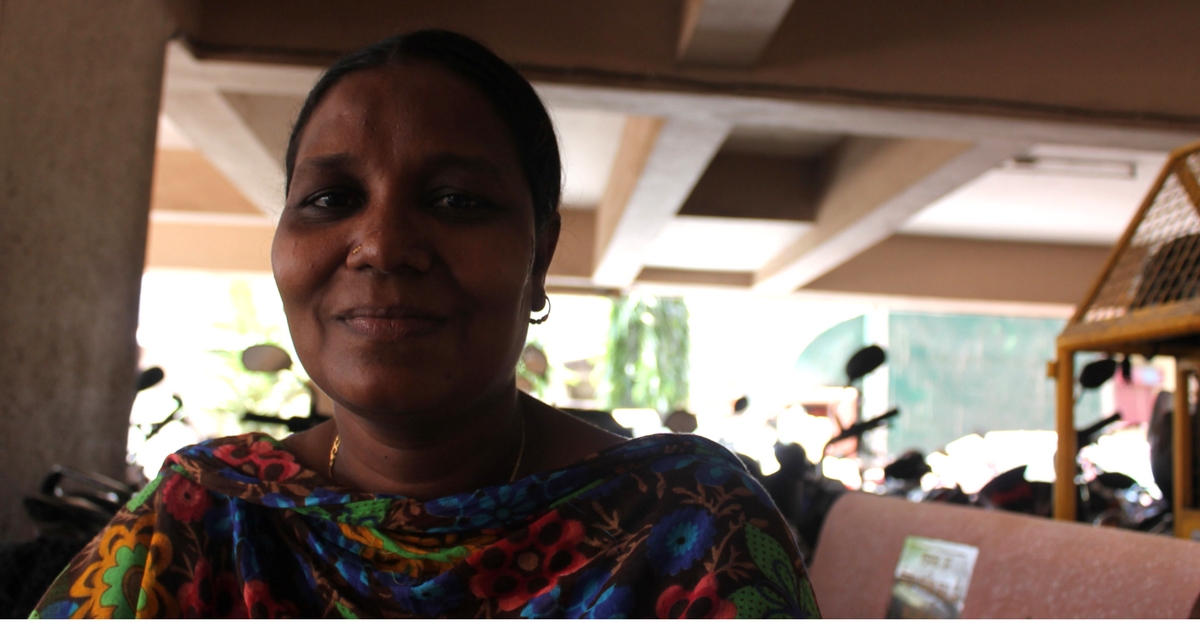
Parveen Sheikh, 48, member of Mahila Milan and NSDF (National Slum Dwellers Federation) for the past 20 years, was born on the footpath and lived most of her life on it. To be homeless plus a woman was nothing short of daunting. Everything she ate was measured to avoid the embarrassment of open defecating on the Sewri railway tracks.
“Sitting near the tracks was frightening because trains would pass regularly. And going in the night was unsafe for the fear of physical or sexual assault,” she recalls.
“So, when I opened the door to my new home in Govandi, I did not look left or right. The first thing I saw was the toilet. And the realisation that I owned this toilet and I could use it as many times as I wanted was empowering. My food intake no longer needed measurement,” she smiles.
Recalling the days she spent as a pavement dweller in Sewri, she says, “When we went to banks earlier, they would ask for residential proof and a guarantor who had an account in that bank. We did not have a roof over our head, where would we get residential proof from? In 2007, I connected to Mahila Milan, a saving unit where savings started from smaller amounts like Rs 5 and we did not need a guarantor. That one decision changed my life beyond words.”
Started in 1986, Mahila Milan is a decentralised network of poor women’s collectives that manage credit and savings activities in their communities. It currently operates as a savings co-operative for women slum dwellers across Mumbai.
From micro door-to-door savings of less than Rs 5 per day in the 90s to the current day scenario, Mahila Milan today has become a self-sufficient unit of saving women.
Read more: Saat Ka Dus: Sanitary Pad Banks Bring Affordable & Hygienic Menstrual Care to Women
Myna Mahila Foundation
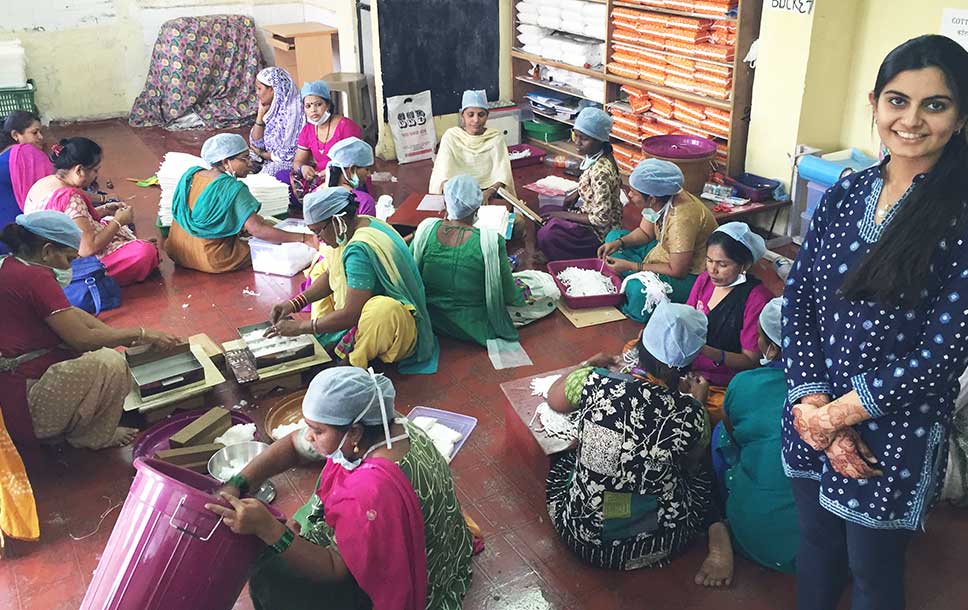
Today, Parveen heads the Mahila Milan Sanghatan at Govandi and also runs a local sanitary pad manufacturing unit under the Myna Mahila Foundation that works in association with Mahila Milan. With low levels of formal employment in slum communities, especially among young women, Myna employs women and trains them to be entrepreneurs who can run franchise businesses for women’s products.
They make sanitary products, such as sanitary and maternity pads to improve women’s health, at subsidized costs.
Women sell the pads door-to-door, in public toilets, balwadis, clinics and local NGOs, to other women who are bound by the societal taboo of leaving their homes to purchase sanitary pads. The company was established in June 2015 by Suhani Jalota and is run by Parveen with two other highly experienced women from the slums of Mumbai, Meena Ramani and Malati Ambre.
“We started with a mere group of five women, today we have 20 women working with Myna. The road was rocky at the start, it almost took a month to train women to master the entire process of making a pad. We ourselves used to be shy about the kind of product we were making and promoting. Suhani spoke to us about how this was a natural process that we shouldn’t be ashamed of discussing. We felt empowered understanding the importance of menstruation to a woman’s fertility. Today when we have meetings, and there are men, we speak to them about it and encourage them to take sanitary products home,” says Malati Ambre.
Myna runs a factory in a slum redeveloped colony in Shivaji Nagar to provide employment to local women to make low-cost, high-quality sanitary products that can be used locally.
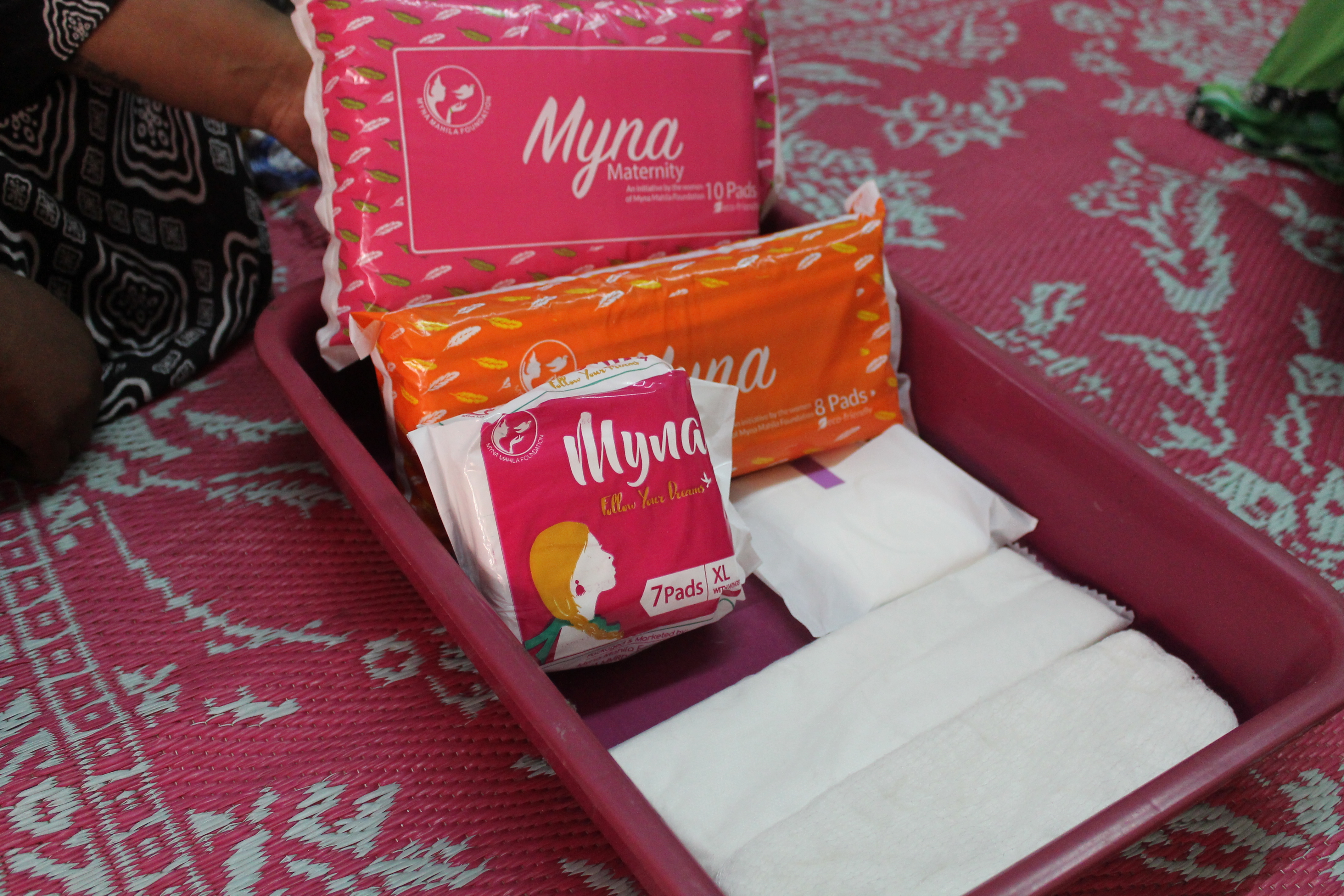
“Our central aim was to create awareness about menstrual hygiene and encourage women to discard their old practices of using cloth and use sanitary pads instead. We never wanted to make a luxury product or collaborate with a brand name. The idea was clear, we wanted a simple and basic product –– made by women, for women and sold by women. We conducted extensive surveys and arrived at the result that 90% women in our slums used cloth. We spoke to experts and in turn showed women videos and conducted workshops to create awareness about the hazards of unhygienic menstrual practices,” shares Meena Ramani.
“People were not ready to turn away from practices they had followed for generations. It took more than a year for our women to create that kind of awareness. When women went from door-to-door selling, people would turn their backs and mock them saying, “Aren’t you ashamed. Why are you selling this?” says Parveen.
Today 80% women are using pads. Donning goggles and patiyala suits, these women have trained their younger generations to ride the pink Myna auto rickshaw that is used for transportation too. They call it their ‘Myna sawaari.’
Read more: Using Waste Cloth and Towels, 4 Rajkot Schoolkids Created Reusable Sanitary Pads for Women
While Myna Pads are manufactured, and sold door to door to women, Myna Maternity pads are sold to local clinics and hospitals. “From the day we started till date, the cost of one packet of Myna, which consists of 8 pieces, is Rs. 25. While leading branded pads weigh 6-7 grams per piece, our pad weighs 11 grams,” she adds.
While Bombay hospital is one of their most loyal customers with a prescription of 500 maternity pad packets per month, KEM orders 350.
On an average, Myna Pads sell 9,000 to 10,000 packets per month.
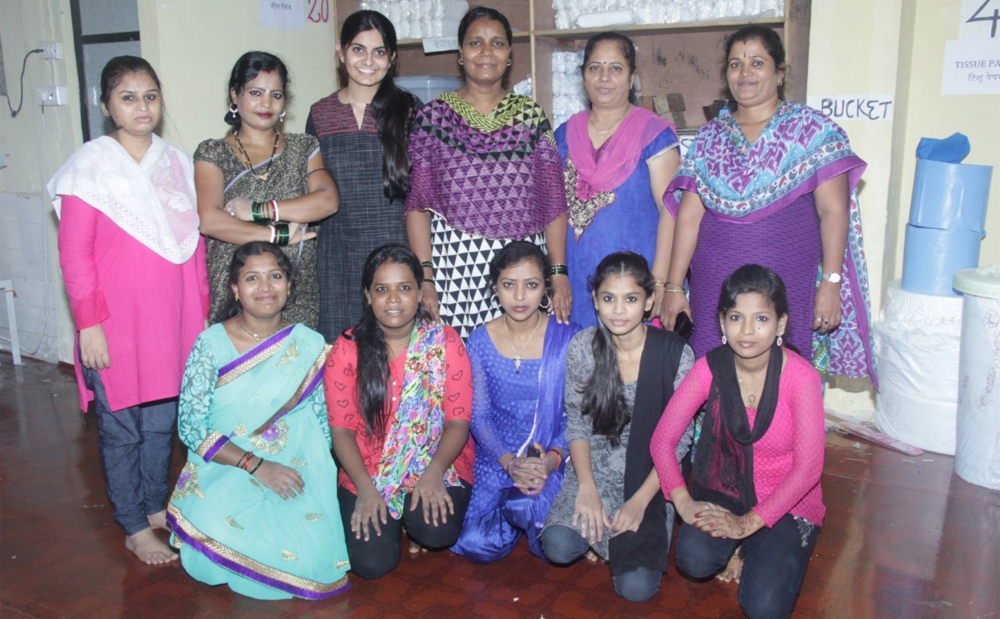
With newer demands and increase in usage of sanitary pads and feedback from users, Myna has also started manufacturing sanitary pads with wings. While the packet is priced at Rs. 40, they sell 3 packets on a subsidized rate of Rs.100 in slums. The women engage the users in a complete demo of 3 to 4 minutes where instructions from opening the pad, to using and disposing of it are covered. The packets bear their contact numbers for home deliveries.
For families with five to six women and girl children, packets are loaned that can be repaid once financially viable.
Connect to Myna Mahila foundation here. Write to them at [email protected].
The low-cost sanitary pads can be ordered from the following number: +91 9326127527
Like this story? Or have something to share?
Write to us: [email protected]
Connect with us on Facebook and Twitter.
NEW: Click here to get positive news on WhatsApp!
This story made me
- 97
- 121
- 89
- 167
Tell Us More
We bring stories straight from the heart of India, to inspire millions and create a wave of impact. Our positive movement is growing bigger everyday, and we would love for you to join it.
Please contribute whatever you can, every little penny helps our team in bringing you more stories that support dreams and spread hope.







